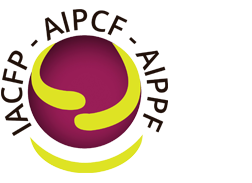STUDY CENTER- POLO 1
Responsible: Rosa JAITIN
The Study Center (CE) collaborates in the organization of research groups associated with universities and clinical focus groups in relation to the Scientific Council.
There are two types of work groups:
The Board of Directors proposes to create a Study Center in agreement with the Scientific Council and the Administrative Council to centralize the set of scientific contributions of each of its members. This Study Center aims to promote the creation of Working Groups among its partners.
The Working Groups are organized around a task that is defined by their own members and elect a spokesperson who serves as coordinator of the Group.
There are two types of Work Group:
Theoretical-Clinical Reflection Groups
The Theoretical-Clinical Groups carry out a proposal for group, theoretical and clinical work on a specific task, through reflective discussion, readings, group dynamics and one’s own experience. In this way, the members delve deeper into the proposed topic and reach their conclusions.
These Reflection Groups require at least three participants, and can meet in person, directly virtually or indirectly virtually.
In the Reflection Groups the focus is on the task and the linking functioning of the materials to be worked on. It involves analyzing the clinical material in the transference, contra and intertransference field.
Investigation Groups
Scientific Research Groups are a group of people who meet to do research on a specific topic. They formulate the objectives and hypotheses, define a scientific methodology (quantitative or qualitative), and draw up a medium and long-term strategic plan to work on it. In this way they produce knowledge results on the topic in question.
A research group is made up of a minimum of 3 people who intentionally work on a plan, purpose or agenda organized by research projects and programs for a sufficient time to produce knowledge results.
The purpose of their work is to achieve quality results that are relevant and visible. This work intends to achieve tangible and verifiable results that meet the established objectives, resulting from projects and other research activities conveniently expressed in a duly formalized action plan (projects). Where each of these activities are recorded in the curriculum of each researcher and then in the research group.
Proposed organisation of the groups by the coordinators
Each group will hold 4 annual 2-hour meetings for two years to present at conferences.
Plan the dates of the meetings with the links and send them to the Study Center to publish on the website.
Presentations
Each group presents its progress at the Study Center meetings and its general conclusions are presented at the AIPCF International Congresses (biannual).
Partial progress is published in the Tramas Bulletin and on the website and new members can request registration from the groups of their interest.
How to participate in the groups?
All IACFP members are welcome to participate in these groups; and other new lines of work may be proposed.
The working groups are intended for members of the IACFP. People interested in participating must submit their candidacy
To participate, please write to us at: centre.etudes@aipcf.com
